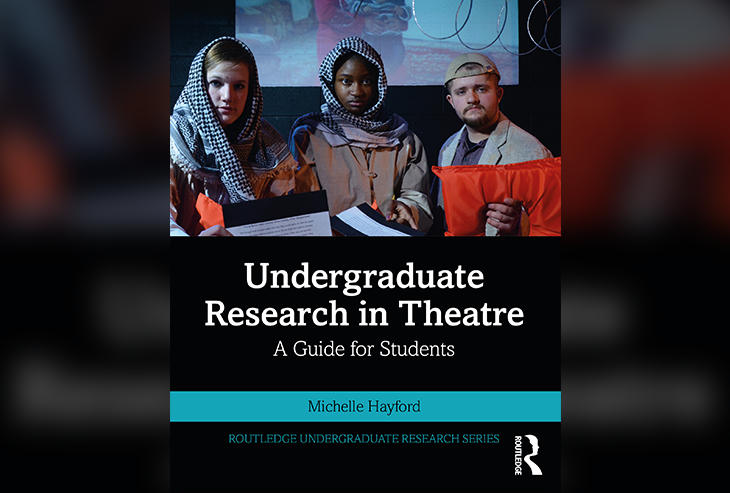Music Theatre student Tyler Okunski ’22 and Assistant Professor Kim Shively from the Department of Performing Arts have published on embodied dramaturgy research collaboration
In January 2020, Tyler Okunski ’22 and Assistant Professor Kim Shively from the Department of Performing Arts collaborated on the department’s production of “The Wolves” by Sarah Delappe.

Shively directed and Okunski served as assistant director for the project. Okunski focused his efforts on the movement in the piece, which takes place during warm-ups for a girls’ soccer club. Through their collaboration, Shively encouraged Okunski to continue to research embodied dramaturgy, which explores movement to help actors embody the world of the play and physically tell the dramatic story to audiences. Okunski drew on his experience as a dancer and soccer player to help the actors understand the physical demands on athletes and the kinesthetics of soccer movements.
Realizing his passion for research as well as performance, Okunski enrolled in an independent study with Shively and they continued to work on embodied dramaturgy as an innovative practice for the acting studio. In the spring of 2021, Okunski engaged with this research while serving as a teaching and learning apprentice for Acting III, a course taught by Shively, which is the final foundational acting class for the BFA acting and music theatre Students.

When Routledge sent out a call for proposals on theatre research for undergraduates, Shively encouraged Okunski to share his research. The two co-authored a case study, “Embodied Dramaturgy in Practice: The Wolves,” which can be found in “Undergraduate Research for Theatre” by Michelle Hayford, published by Routledge and released in July 2021.
Okunski continues his research under Shively’s mentorship. Examining how embodied dramaturgy can serve students learning remotely, last year Okunski supported a remote learner for Acting III and presented on the development of his research at SURF 2021. Now Okunski plans to continue this research during his senior year and beyond, examining how embodied dramaturgy serves actors learning remotely and neurodiverse artists.



